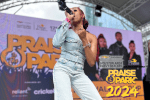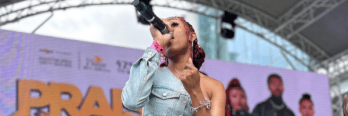Kindergarten Reading Standard
Literature and Informational Text
A kindergarten-aged child should be able to ask and answer questions about a story as well as retell the story with prompting and support from a parent or other adult.
First Steps
- Practice reading simple books with them.
- Read each day with your child.
- Model reading as a good behavior. Your child will love to read if you read and show enthusiam for reading.
They should also be able to identify characters, settings, and plots for these stories. A child should be able to ask questions about unknown words in the story, recognize the type of literature (poem, storybook, etc), and be able to name the author and illustrator of the book. The child should also be able to tell what role the author and illustrator plays in telling the story.
With help a child should be able to tell the relationship between the text and illustrations of the story they are reading, and compare and contrast the experiences of characters in stories they are familiar with. These children should also be able to actively engage in reading activities.
Here are some books that you can start with.
- Black? White! Day? Night!: A Book of Opposites by Laura Vaccaro Seeger
- Brown Bear, Brown Bear, What Do You See? by Bill Martin Jr.
- Chicka Chicka Boom Boom by Bill Martin Jr.
- Little Bear Box Set (Make sure that you get this set for your child. My god-daughter loved this set and we read them over and over. )
Foundational Skills
A kindergarten aged child should be able to show an understanding of the basics of print, by following the words left to right, top to bottom, and page to page. They should also be able to recognize that the spoken word is represented by letters of the alphabet put in a certain order as well as being able to recognize and name the alphabet in both lower and uppercases.
There are many print sheets that you can use. Visit: http://www.handwritingworksheets.com/
The child should also be able to demonstrate understanding of the spoken word, able to match rhyming words, count, pronounce, blend, and produce syllables. They should also be able to remove and replace individual sounds in a word to create a new word i.e. ball turns into hall. Your child should be able to name the sounds of the consonants and vowels (long and short), and be able to read commonly used words such as, the by sight. A kindergartner should also be able to tell the difference between words by identifying the sounds of the letters that differ, as well as read an emerging reader text with comprehension.
Writing
For writing a kindergartener should be able to use writing, dictation, and drawing to tell the topic of a story, the title of the book they are writing about and opinion on the topic of the story, or information that they have read. Students should also be able to tell a string of events using writing, dictation, or drawing. With help from adults’ children this age should be able to draw upon opinions of their peers and strengthen their writing, as well as be able to use multiple resources and work with peers. A kindergartener should be able to participate in group activities such as comparing and contrasting an author’s different work. With help from an adult a child should also be able to find the answer to a question with basic research or from recalling personal experiences.
Speaking and Listening Skills
A kindergartener should be able to participate in conversations about age appropriate topics with both adults and peers as well as in small and large groups. A child should be able to follow the rules agreed upon by people in the conversation (i.e. waiting their turn), and continue a conversation through many exchanges in speakers. The child should be able to confirm or deny comprehension of information read to them aloud or through other media by asking questions concerning key details and asking for help if something is not understood. The child should be capable of describing familiar people, places, things, and events with prompting and support, as well as be able to add drawings or other visual displays to descriptions to provide additional details and should speak audibly while expressing thoughts, feelings and ideas.
Language Standards
Kindergarten aged students should be able to demonstrate knowledge of standard English grammar and usage in both writing and speaking as well as print many upper- and lowercase letters. They should be able to use frequently occurring nouns and verbs properly and form regular plural nouns orally by adding /s/ or /es/ to the end of the singular noun. Kindergarteners should be able to understand and use questions words (the five W’s and how) and use prepositions such as to, from, in, out, and other frequently occurring words. They should be able to complete a sentence and expand on a sentence in language activities and show they understand capitalization, punctuation, and spelling when writing. They should be able to capitalize the first word of a sentence and the first letter of a pronoun (name, I) as well as recognize and name end punctuations.
Kindergarteners should be able to write a letter or letters for most consonant and short-vowel sounds, and spell simple words phonetically. The child should be able to determine the meaning of unknown and multiple meaning words and phrases based on kindergarten reading and content, as well as identify new meanings for familiar words and apply them accurately (knowing that a duck is a bird, and the verb to duck. With help from adults a kindergartener should be able to explore word relationships in word meanings, sort common objects into categories (color, shape), and demonstrate understanding of frequently occurring verbs and adjectives by relating them to antonyms. Children should be able to identify real-life connections between words and their use and distinguish shades of meaning among verbs describing the same general action (walk, march) by acting out the meanings. Children should also be able to properly use words and phrases learned while being read to, reading, used in conversations, and responding to text.
Make sure that your child knows these sight words. The new standards require that they know them. They are also the top used words in print.
Game Center Tip: Games can also help children learn to recognize common words quickly. Buy colorful index cards and write each one of these words down. Put them on the refrigerator and play rhyming sentence games. You would be amazed at how quickly they learn!
READ: How To Help Children When Grandparents Have Alzheimer’s
In The Know: What Your Kindergarten Child Should know was originally published on elev8.com











